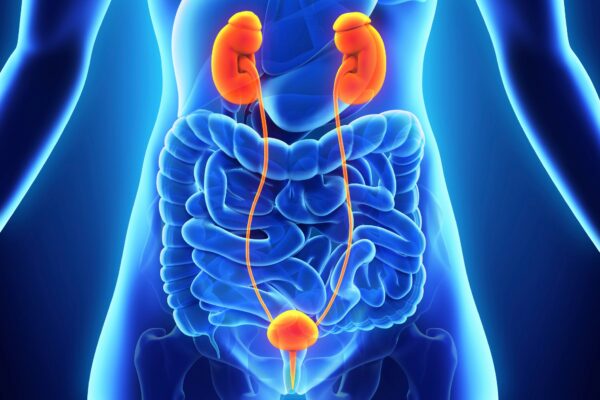Obstructive Uropathy is the condition caused by some form of obstruction when the urine cannot flow out in the normal way to the bladder and it backs up into the kidneys.
This can be caused by a variety of reasons- a pelvic injury or fracture, a kidney stone, certain diseases and cancerous growths in the region.
Also an enlarged prostate gland is a common cause of obstruction in men.
The ureters are two tubes that carry urine from each of your kidneys to your bladder. Obstructive Uropathy can cause swelling and other damage to one or both of your kidneys.
Symptoms
The onset can be very quick and acute, or slow and progressive.
Generally you feel pain in your back or abdomen on one or both sides of your body. You feel generally unwell with a fever and feeling sick.
You may notice problems passing urine and that it is not a steady stream but more of a trickle. There may be blood in your urine and you may feel you need to constantly go to the loo but be unable to pass much.
Diagnosis
Ultrasound is a quick simple and painless way to diagnose you.
Scans of your pelvic region and your kidneys will show if urine is backing up into your kidneys.
Treatment
Removing the obstruction from blocked ureters is the main goal of treatment.It is important to diagnose and treat the cause as soon as possible to avoid any long term damage to the kidneys.
Surgery
A surgeon will remove masses such as cancerous tumours, polyps, or scar tissue that forms in and around your ureters. Once they clear the blockage from the affected ureter, urine can flow freely into your bladder.
Stent placement
A less intrusive form of treatment is the placement of a stent (mesh tube) in the blocked ureter or kidney to keep the tube open . This can be a good solution for ureters that become narrower from scar tissue or other causes.
The stent is put in place by catheterisation while you are awake.

